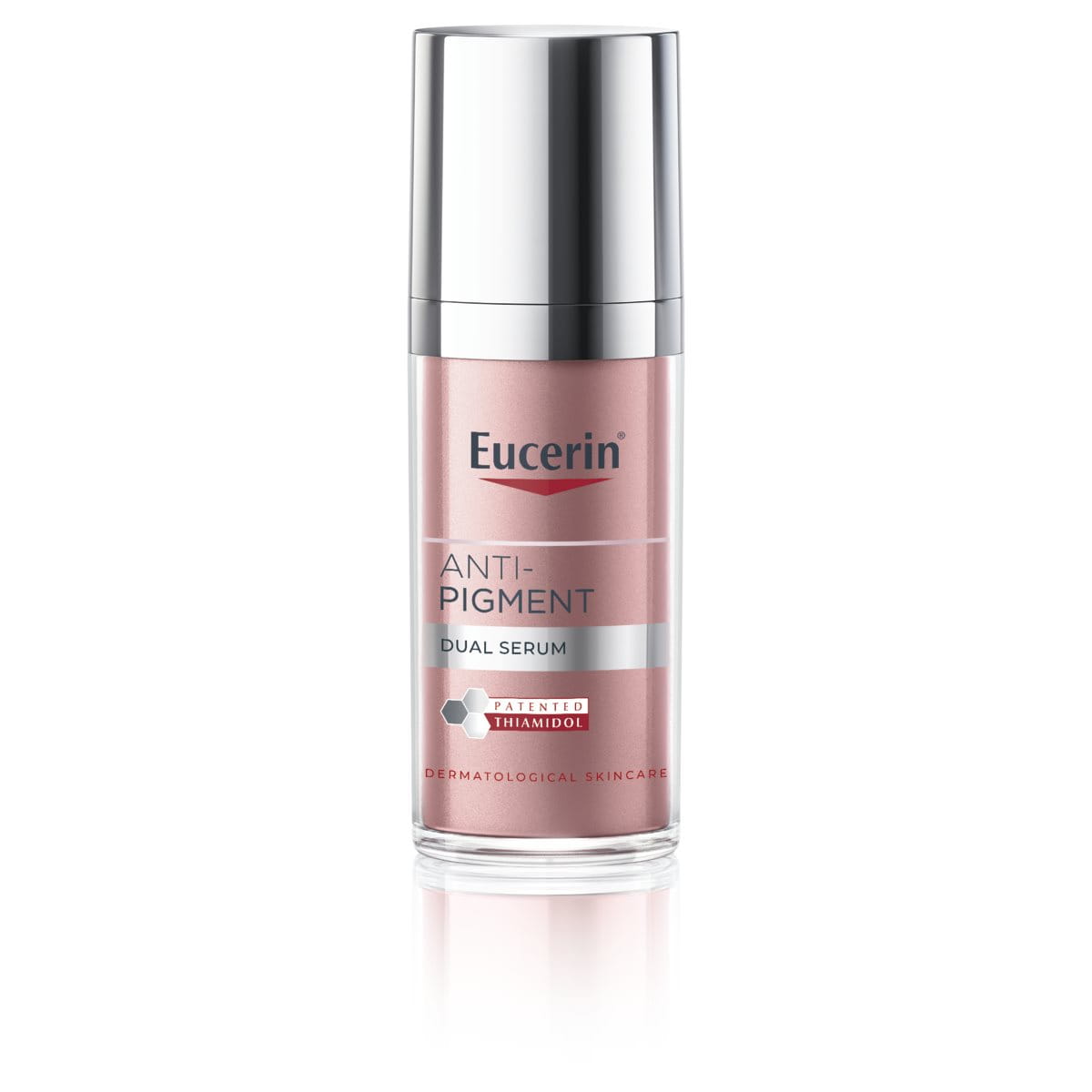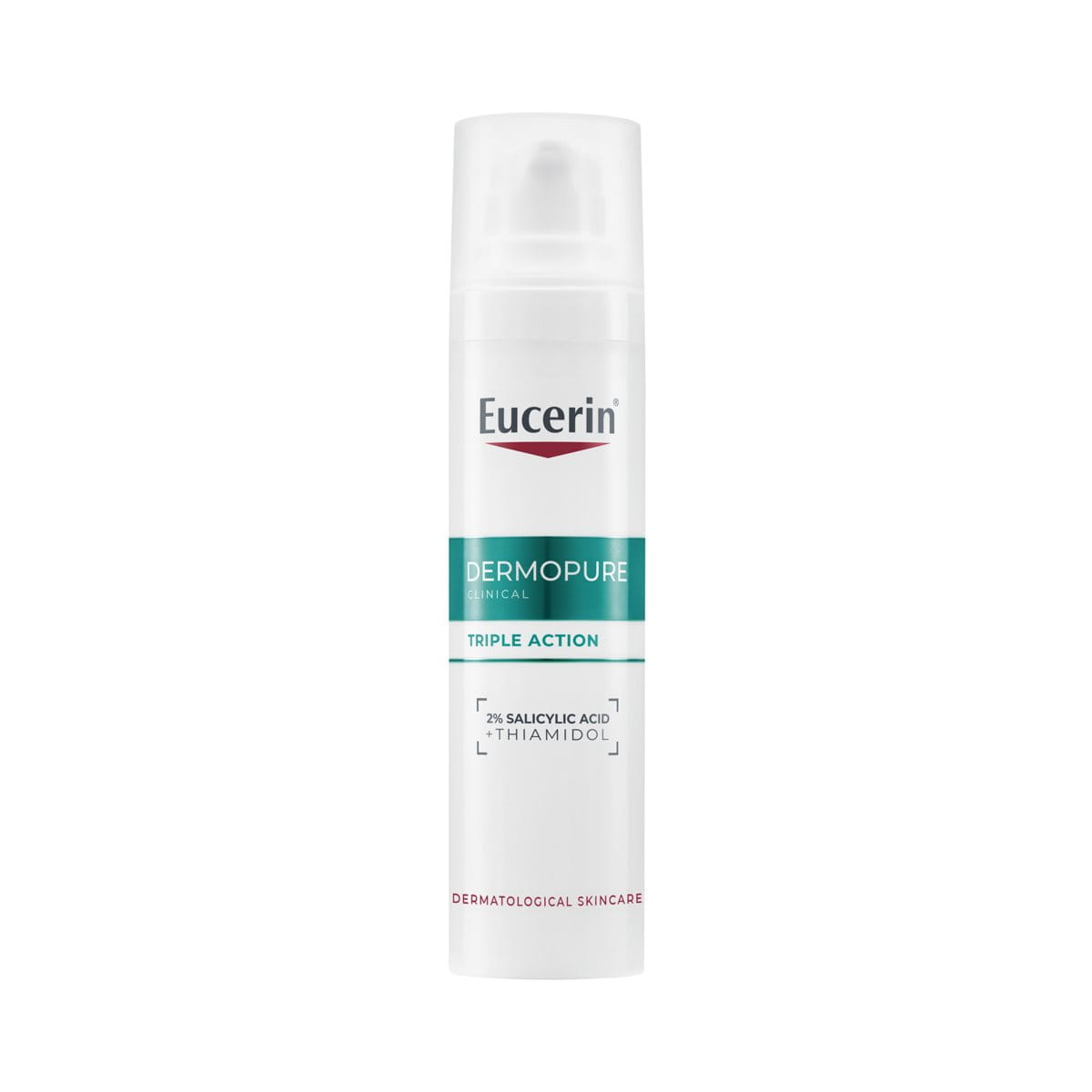An itch is a tingling sensation which makes us want to scratch. That sensation is generally localised (i.e. on a specific part of our body such as our calves) but can be generalised too (i.e. all over the body).
When something irritates our skin it disturbs skin’s protective barrier. Our skin cells release histamine and the receptors in our skin send a message to our brain that encourages us to scratch.
When skin is dry, its protective barrier does not have the moisture and lipids it needs to work effectively and it is more prone to external irritants that may result in itching.
Scratching is a natural reaction, and may offer temporary relief, but frequent scratching can further exacerbate itching. Scratching can damage skin causing it thicken and send off further itch messages to the brain - and the itch cycle begins.
Excessive scratching can also damage skin and, when skin is damaged, it is less able to work as an effective barrier making it, and your body overall, more prone to infection. With this in mind, it’s important to take itchy skin seriously and to care for it at an early stage
An itch can be triggered by a variety of stimuli − chemical, physical and psychological.
Dry skin is often itchy and there are a range of factors - both internal and external - that can cause skin dryness and, therefore, itching:
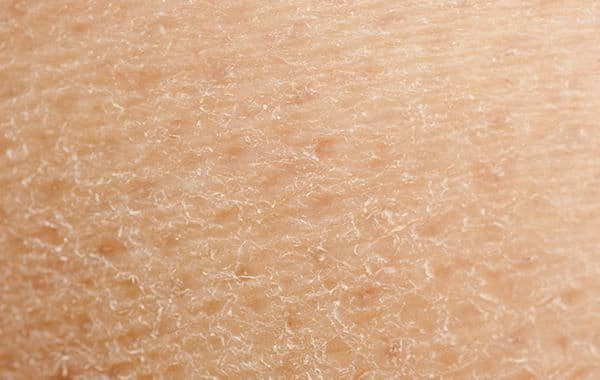
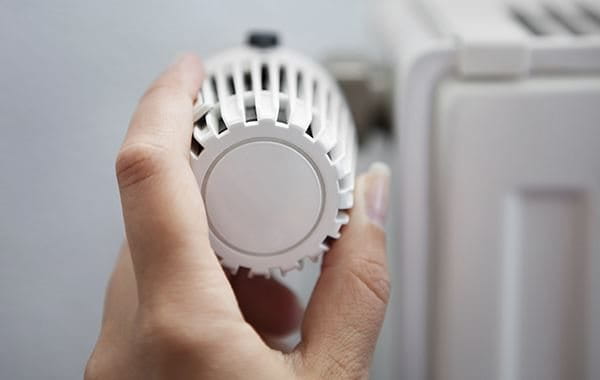
Internal factors
- Genetics
- Hormonal changes for example menopause
- Skin ageing: our skin naturally becomes dryer as we get older
- Diseases: dry and itchy skin is a symptom of a number of diseases including Atopic Dermatitis, Psoriasis and Diabetes,
External factors
- Climate and environment: dry weather, central heating and air conditioning can all exacerbate dryness
- Sunburn
- Certain medications
- Washing too frequently with water that is too hot
- Aggressive cleansers and laundry detergents
- Diet
- Stress
There are, of course, several factors that can trigger itching that are not related to dryness or skin disease but also disturb skin’s protective barrier. These include:
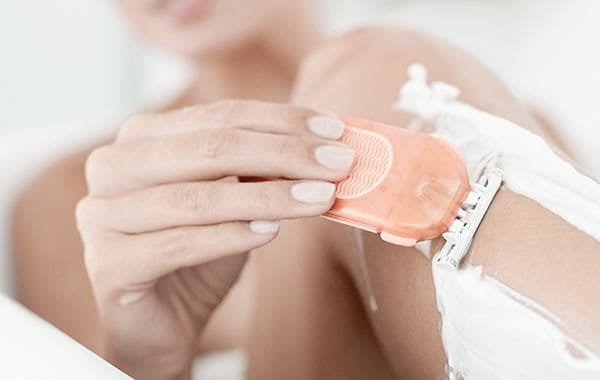
- Allergic reactions
- Insect bites and stings
- Poisonous plants (such as Poison Ivy)
- Shaving
In some cases, regular itching can be a symptom of more serious conditions such as cancer (most notably lymphoma and leukemia). If you experience regular itching and discomfort it is important that you consult your doctor as soon as possible for a professional diagnosis.
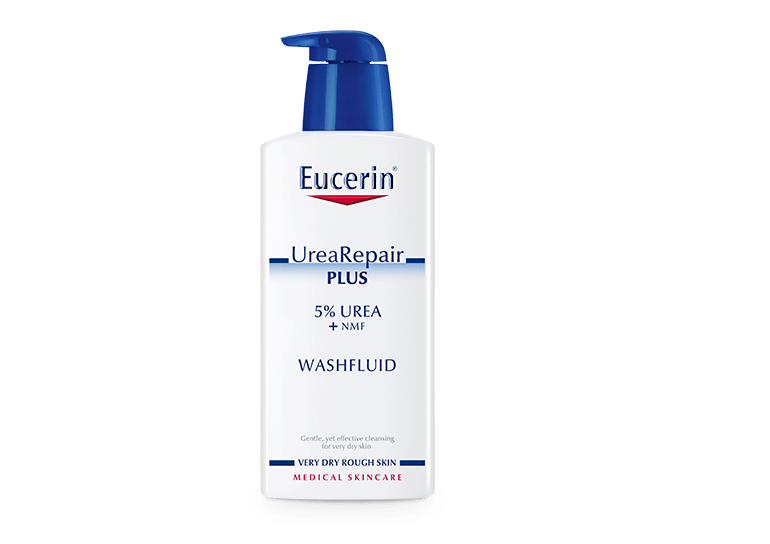
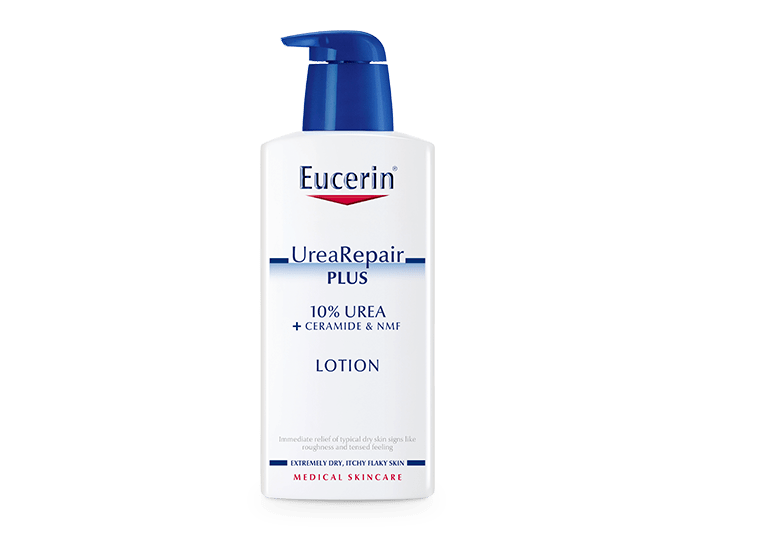
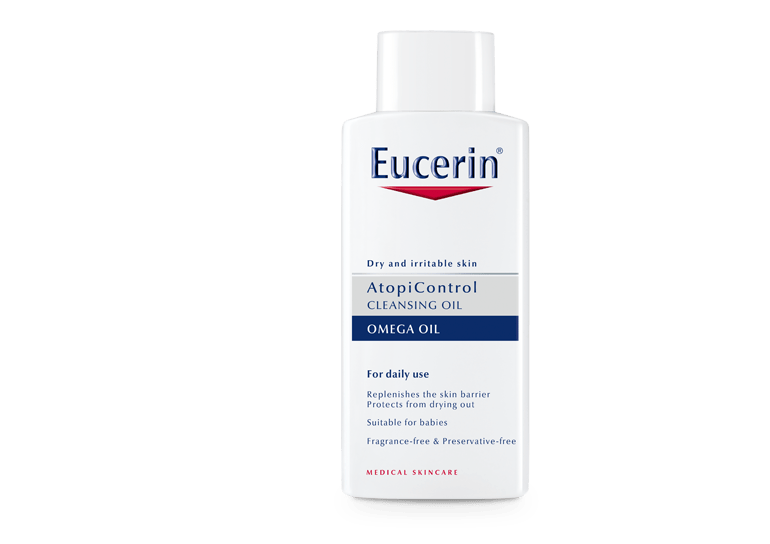
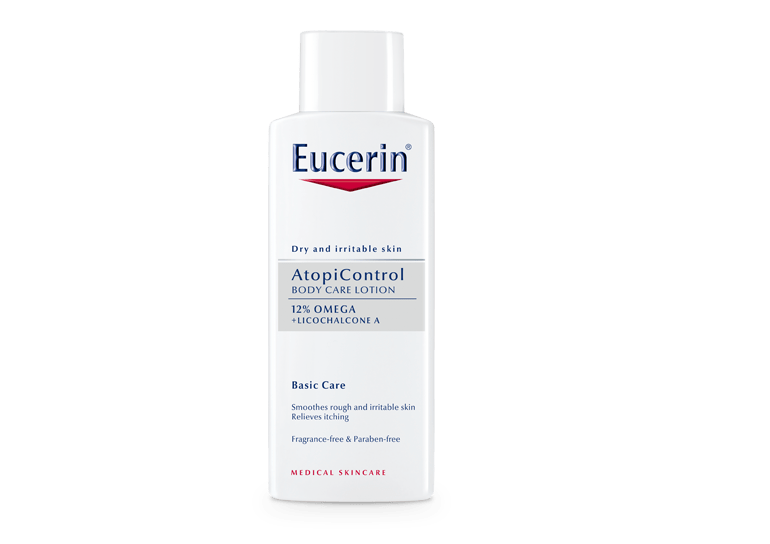
Itchy skin benefits from regular and consistent skincare using products that have been specially formulated to tackle the causes of the itching as well as to give instant and long lasting relief for the symptoms.
The Eucerin UreaRepair PLUS range has been specially formulated for dry, itchy skin. It contains:
- Urea and other Natural Moisturising Factors (NMFs) that improve skin’s water-binding capacity and increase its moisture content
- Ceramide and other lipids that help to strengthen skin’s barrier and protect against further moisture loss.
The range of cleansers and care products is clinically and dermatologically proven to offer immediate relief from dryness and itching as well as a 48-hour delay of dry skin symptoms.
The following products will be particularly effective for relieving dry, itchy skin on your body:
- Eucerin UreaRepair PLUS Washfluid 5% Urea: a gentle but effective all- over body cleanser
- Eucerin UreaRepair PLUS Lotion 10% Urea: a light but intensely hydrating body moisturiser to soothe dry, itchy skin on your body
All products in the range are suitable for us on dry itchy skin all over the body, but should not be used on open wounds or on skin with Atopic Dermatitis.
For skin with Atopic Dermatitis we recommend the Eucerin AtopiControl range which soothes itchy atopic skin even during flare-ups. It contains:
- Lichochalcone A (extract of Liquorice root): a powerful anti-inflammatory that soothes itchy skin and reduces redness
- Omega-6 oils: Rich in fatty acids, natural oils such as Evening Primrose and Grape Seed help to stabilize skin’s protective barrier and reduce moisture loss.
- Menthoxypropanediol, the active ingredient in Eucerin AtopiControl Acute Care Cream: a derivative of menthol. It reduces the itching sensation in skin by activating the cooling receptor in nerve fibre endings.
The range is suitable for use on babies (over the age of three months) and children. The following products will be particularly effective at relieving adult atopic skin all over the body:
- Eucerin AtopiControl Cleansing Oil: gently cleanses and soothes itching
- Eucerin AtopiControl Body Care Lotion: hydrates and soothes itchy, atopic skin.

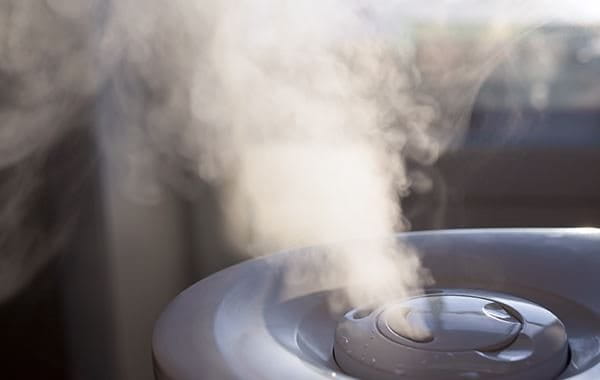
Topical treatments and specially formulated skincare will help, but there are other things you can do − and things you can avoid − to reduce, and in some cases prevent, itchy skin.
The first one may sound obvious but is very important – don’t scratch! Scratching only strengthens the itch and is counterproductive. Excessive scratching can cause skin damage and create small wounds which may get infected. When itching is severe, try to cool the irritated areas with a moist compress and/or carefully massage the itchy areas of skin.
Other measures that can prevent or reduce itchy skin include:
- In the winter: use a humidifier indoors to prevent air from drying out and protect your skin from drying, chaffing wind when you are outside
- In the summer: avoid prolonged exposure to heat and humidity
- Where breathable, comfortable clothing. Avoid synthetics and scratchy wool.
- Wash new clothes and towels before use
- Use mild, fragrance-free laundry detergents and avoid fabric softeners and bleaching products
- Use soap-free cleansers and hypoallergenic make-up products
- Keep your nails trim and wear cotton gloves at night to protect your skin from scratching
- Practice relaxation techniques to reduce anger and stressDrink plenty of water to prevent your skin from drying out
